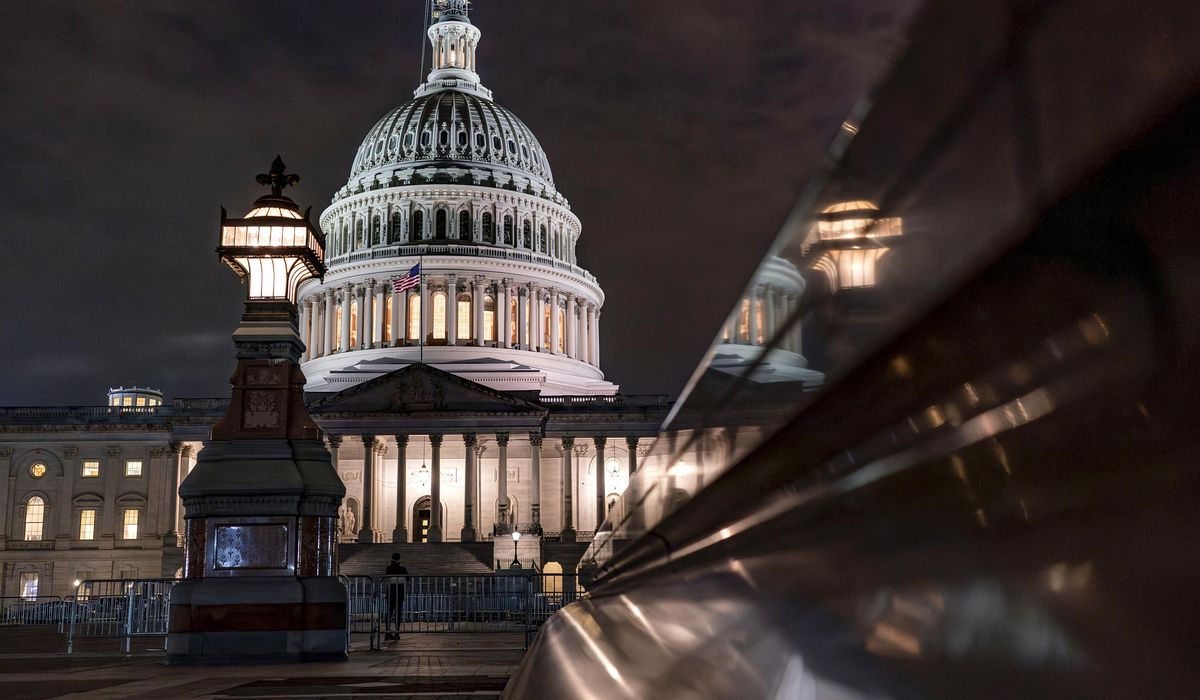The Senate approved a House-passed temporary government-funding measure Wednesday night, sending the legislation to President Biden for his signature and narrowly avoiding a midnight Friday shutdown deadline.
The Democratic-led chamber passed the bill by an 87-11 margin. Known as a so-called “clean continuing resolution,” it does not include any spending cuts.
The Senate voted down an amendment from Sen. Rand Paul, Kentucky Republican, to slash spending across the board by approximately 1%.
Mr. Biden is expected to swiftly sign the legislation.
But Washington’s work on funding the government long-term is far from over.
The two-part stopgap measure kicks the can down the road by creating two more shutdown deadlines on Jan. 19 and Feb. 2, splitting funding into two tranches for different government agencies. That allows lawmakers just five working weeks to negotiate and pass the first four of 12 funding bills by Jan. 19 that comprise the annual budget, a major hurdle for a bitterly divided Congress.
Both chambers continue to struggle to pass their own budgets, a precursor for going to conference and hashing out their differences.
Despite the deadlines, the House and Senate depart Washington this week for a nearly two-week Thanksgiving recess. Congress is then out again for the last two weeks of December and the first week of January for the holidays.
In the latest sign of House Republicans’ internal struggles, conservatives again tanked a portion of the GOP’s annual budget proposal on Wednesday.
Speaker Mike Johnson, Louisiana Republican, canceled the week’s remaining votes and sent members home until after Thanksgiving.
The House has passed 7 of 12 appropriations bills and the Senate just 3 of 12, but none have passed both chambers. Those that have passed the Senate were negotiated and approved with bipartisan support while the House’s were Republican-only measures.
“One of the biggest challenges, obviously, is there’s a difference in numbers between the House and the Senate,” said Senate Minority Whip John Thune, South Dakota Republican. “At some point, you have to have an alignment of incentives and interests.”
Since the 1974 Congressional Budget Act that established the modern-day budget process, Congress has passed its annual budget by the Oct. 1 fiscal deadline only four times.
𝗖𝗿𝗲𝗱𝗶𝘁𝘀, 𝗖𝗼𝗽𝘆𝗿𝗶𝗴𝗵𝘁 & 𝗖𝗼𝘂𝗿𝘁𝗲𝘀𝘆: www.washingtontimes.com
𝗙𝗼𝗿 𝗮𝗻𝘆 𝗰𝗼𝗺𝗽𝗹𝗮𝗶𝗻𝘁𝘀 𝗿𝗲𝗴𝗮𝗿𝗱𝗶𝗻𝗴 𝗗𝗠𝗖𝗔,
𝗣𝗹𝗲𝗮𝘀𝗲 𝘀𝗲𝗻𝗱 𝘂𝘀 𝗮𝗻 𝗲𝗺𝗮𝗶𝗹 𝗮𝘁 [email protected]



